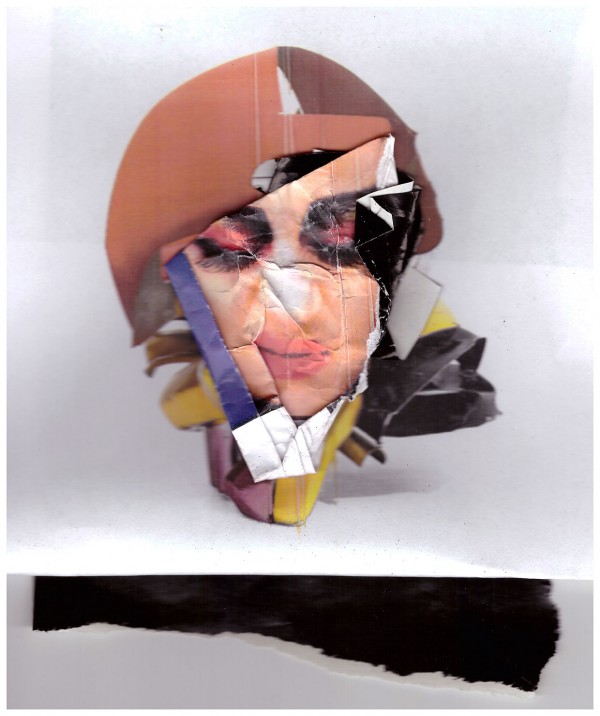Artists inside and out
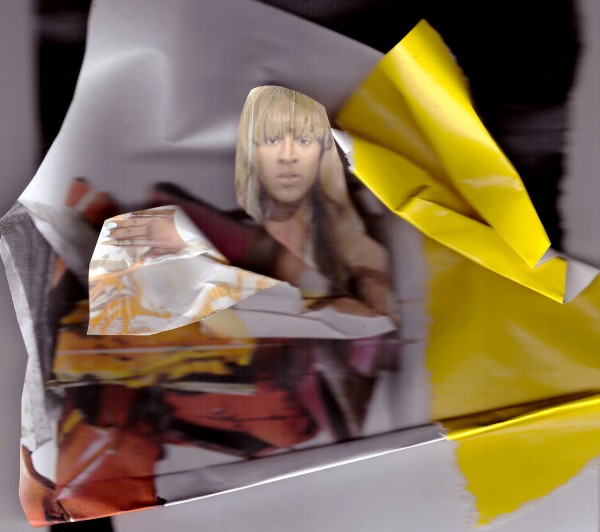 At the beginning of the 21st century, rap, often seemingly obsessed with tradition and reputation,had at last started to play with gender roles. So by 2015 you might think the subject is done and dusted right? But two recent releases from both Peaches and Mykki Blanco demonstrate that there is still much to talk about.
At the beginning of the 21st century, rap, often seemingly obsessed with tradition and reputation,had at last started to play with gender roles. So by 2015 you might think the subject is done and dusted right? But two recent releases from both Peaches and Mykki Blanco demonstrate that there is still much to talk about.
Thomas Venker met them both separately in the digital jungle, as schedules clashed. But he’s edited them back into the same place for you dear readers. Call it modern journalism.
Collages by Sarah Szczesny.
Mykki, Peaches, did you two meet in person before?
Mykki Blanco: Yes, we have. It was at an Austrian festival. She was playing live, but I didn’t have the chance to see her show back then. But I told her that I am a huge fan and had followed her music for a long time. We both share a good friend, Björk – Björk told me one time that my shows remind her on early Peaches stuff.
Peaches: I remember that you came up to me and told me that Björk said we are very similar, that we are both punk as fuck. I thought that that was great. I got to see you that day for the first time live, I was really surprised how he – well, I always say that I injected a certain kind of rock’n’roll into electro – he injected hardcore into hiphop, but not in a Limp Bizkit way, that would be horrible.
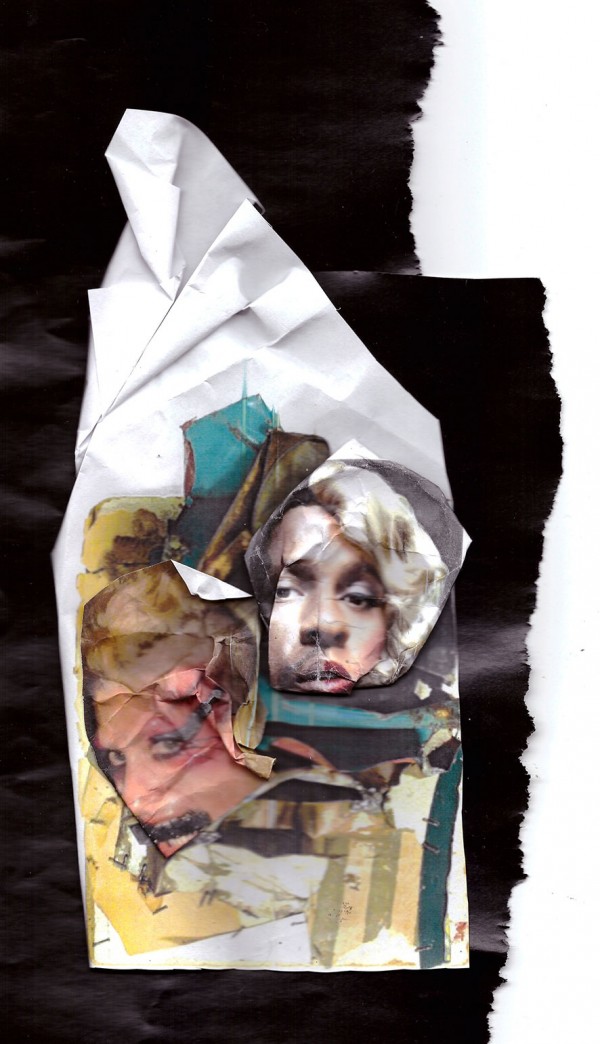 Mykki, is Peaches part of the generation of artists who inspired you to include sexuality and gender within your music?
Mykki, is Peaches part of the generation of artists who inspired you to include sexuality and gender within your music?
Mykki Blanco: I wouldn’t say that. Because that for me would have been Kathleen Hannah and artists like Missy Elliott. Peaches for me was more that celebration of sexual liberation. It had less to do with gender and queer, it was about sexual freedom and being able to unashamedly to embrace your sexuality. That’s more it.
Peaches: My thing is that I want people to feel comfortable in their own body. There are a lot of religious, political and social aspects that stop people from realising that they feel uncomfortable in their own body and that is not fair. That is the message.
Mykki Blanco: I remember the high of electroclash, I was around 16 back then and very familiar with Peaches, Chicks On Speed and WIT and a lot of the protagonists of that scene in New York City, I read about it in fashion and cultural magazines… Her big hit “Fuck The Pain Away” was such an amazing dance song, people back then threw underground parties in New York where everybody was wearing underwear. It was a glamorous and sleazy time. I was so young, all of that was… I was even not clubbing so much back then, but I was trying to absorb as much as possible,
Peaches: I hear that all the time. I spoke at a Vice party last week to a German kid who played there with his band and he came up to me and said: “Hey, Peaches, when I was 9 years old I went to see Marilyn Manson with my Dad and you opened up – my 9 year old self was not ready for that but it was an inspiration I will never forget.” I used to be that person looking up to other people and now I am that old thing that keeps hanging around.
But still on the pulse, I have to say after listening to your new record.
Peaches: The people are living now longer as in the last century, so they do not have to feel guilty and ashamed to be older and still be part if it.
Mykki, how old were you when you started your own music?
Mykki Blanco: 25.
Oh, that much later. I would have guessed that the Do-It-yourself-approach which was in the air, represented by both the generation of Riot Grrrls and Dance-HipHop, would have inspired you earlier on.
Mykki Blanco: Indeed, when I was starting to do music, I was producing a lot of the beats myself. That was around 2010. Regarding what you were saying: I remember well Chicks On Speed and their “We don’t play guitars”. They were really proud of that. That obviously was a call to arms for queer people and for women to be able to be included in this male dominated world, especially in live music where .. it kinda changed now with the rise of HipHop and Pop being the dominating genres, but at that time Rock was still a very dominate genre. This was before the era of bedroom producers and soundcloud producers – it was by that a big statement to say: We don’t play guitars. For me as Mykki Blanco, I really wasn’t. To be honest, Mykki Blanco started off as a quite comedic personal art project. None of the things people were seeing later on was in the initial idea: I was not trying to challenge, it was simply a joy of mine.
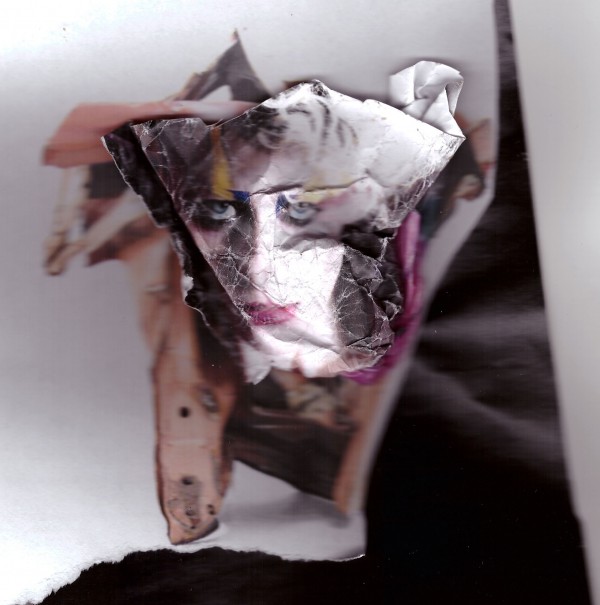 Peaches, when you released your debut album „The Teaches of Peaches”, on Kitty-Yo in 2000, your hymn „Fuck The Pain Away“ charted new terrain within Rap and Pop. Taking questions of gender identity into the club was pretty new. How does the difference of today feel for you?
Peaches, when you released your debut album „The Teaches of Peaches”, on Kitty-Yo in 2000, your hymn „Fuck The Pain Away“ charted new terrain within Rap and Pop. Taking questions of gender identity into the club was pretty new. How does the difference of today feel for you?
Peaches: Today there is so much more openness to discussion about gender – transgender is still not mainstream as some people keep on saying. No, it’s not, it is still a kind of a trend right now. And you have to be careful and realise that there is still a lot of work to do.
As artists whose work is closely connected to ideas of gender identity, how does the current hype around these subjects feel for you?
Mykki Blanco: When I started to engage in real world discourse, when my queer identity was questioned by people of the music industry, that made me very vocal as I was experiencing in the real world these discriminations and attitudes. This was around 2012 – back then people were not having this open public dialog about transgender and transgender rights. Gay marriage had just passed a few months ago. How far do we have to come – and how far have we come in such a short time. The current generation is very concerned with using correct pronouns and representing people with their gender orientation correctly – it is a very interesting shift from four years ago, it’s happened so rapidly.
It is very positive. Understanding is the first step to really learning. To understand that these issues have nothing to do with moral judgments is a huge step. Now we live in a generation where people say: “You are a transsexual – I accept that. It has nothing to do with my morality it has to do with you being a human being.” It is a big step when mainstream culture is thinking like that.
Peaches: It definitely still shocks people to see an Olympic runner become a woman. Maybe surprising is the better word. But that’s how it starts: it is a hype, a trend, and hopefully it follows with becoming more normal. When I started what I do, I felt like the mainstream was not covering what I do – but it should. I was hoping that over the time the mainstream will move closer to me and I do not have to move closer to it. Somehow this happened.
Mykki, you are starting your own label Dogfood Music Group with a compilation album on which you present three other acts from your immediate environment: Yves Tumor, PsychoEgyptian and Violence. An unusual thing – the sounds are positioned between rap, dance and noise. Am I wrong to read this as a personal biography? Are you building a utopia out of lived contradictions and radicalism? And how does it happen that there are just men in it?
Mykki Blanco: When I signed with K7! we had a meeting and I expressed to them that I wanna start giving a voice to the community I was part of. And they said: Why don’t you start your own imprint via K7!? I did not even know I could do that – but they offered to help me. Already this was such a positive experience. I was thinking of discussing this in a public sphere: with Dogfood Music I realised within America, that some of the decisions I made and attitudes thrown at me, I always thought it has to do with homo- and queerphobia. Sometimes yes, it was, but other times people did not have the same kind of respect for musicians of colour who are making music which is not hiphop music. This has nothing to do with sexuality, this has to do with racial idea: as an Afro-American who is not doing hiphop you not gonna get an audience / fans for your work. That’s tragic.
One of the things I was realising, all the featured artists here are people I follow closely, or I am fan of. I wish I would have been able to find a female artist or producer of electronic music to include on the compilation, but I failed here. I will write an open letter about this. It has been so difficult. Cause of my fan base I encounter a lot of woman, lesbians, transgender women, but even with my encounters with so many women it is still so difficult to find woman musicians. That has so much to do with our society and who gets to make music and who doesn’t. Take an artist like Grimes who has been very open with her struggle with men taking ownership of her music or her not knowing how to use her equipment. I am trying to get to the bottom of it. Our society is discouraging women from producing music – it has more to do with the music industry dominated by men. There is a message missing to young girls that they have the ability to use …Maybe I have to make an open call to arms here for help.
Peaches: That is quite lazy. I really do not know what to say: maybe you are looking in the wrong places. There are great female artists like Paula Temple or Rroxymore.
Peaches, you looked in the right direction and worked for your current, fifth album again with good people like Kim Gordon and Feist – and in the past Yoko Ono, Major Lazer, Le Tigre and Michael Stipe. How important are they for your inspiration.
Peaches: That question is so weird. I made my first two albums basically with no collaborators. It is fun to mix your ideas with those of others. Kim just came into the studio and made a really good hook right away and inspired me to write the rest of the song. I had a chorus ready but then she added this bit after the chorus which actually became the real hook. There were other collaborations which did not work out – but I do not mention them.
I didn’t mean it in a bad way.
Peaches: I ain’t saying that. It is nice to collaborate with other people as long as it is still part of your own work.
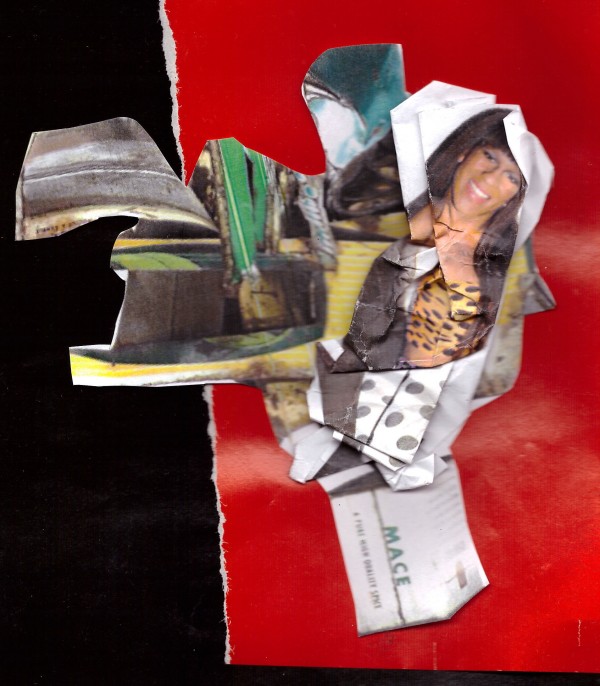 I understand both of you as interdisciplinary artists. Mykki, you are a journalist, an political activist, an artist in the sense of a Gesamtkunstwerk as you worked on tearing off the wall between private and public persona as a gay transvestite as well as those walls between gender.
I understand both of you as interdisciplinary artists. Mykki, you are a journalist, an political activist, an artist in the sense of a Gesamtkunstwerk as you worked on tearing off the wall between private and public persona as a gay transvestite as well as those walls between gender.
Mykki Blanco: I think that I stand for a lot of things to a lot of people – sometimes when I reveal how I feel about a certain political issue, some people are disappointed as they expect me to be very one dimensional and by that a radical queer artists who also has to agree and champion other radical queer issues. I am definitely not that way. I am a humanist. There is a Le Tigre song quote I always like to use: “Go tell your friends I’m still a feminist. But I won’t be coming to your benefit.” When I think that my opinion is helping to change things, then I gonna speak up, but a lot of my interests are really not that centered to sexuality. To be honest, I am right now much more concerned what is happening to the environment. People seem to have that very polarised view that what happens to the environment happens to the trees and animals and plants – but there is a whole human condition to all these disasters that happen globally. People want me to talk about police brutality, trans rights and this and that… I do, but at a certain point I think there are already so many in my community talking about. What nobody is talking about: in 50 years certain parts of the world will go underwater or disappear. And the UN is not recognizing refugees on environmental matters. There are so many social protocols we need to talk about. The queer community can be sometimes very self centered.
Peaches, you recently produced an opera based on your life, „Peaches Christ Superstar“ as well as a movie: „Peaches Does Herself“. You also played the main part at the HAU-Inszenation of Monteverdi’s opera „L’Orfeo“ and you directed again videoclips (like the one for “Light In Places” with the British performance-Artist Empress Stah) to your record – in their words: your career seems to be pushed by the credo: “I am able to do everything”. As with Mykki that there are no borders between private and public life. Also with the new book from „What Else Is In The Teaches Of Peaches“ von Holger Talinski on you.
Peaches: Those other projects are great outlets. They are basically my music – well, “Peaches does Herself” is a bit more theatrical. By getting this past out, I could go back to the core of Peaches and was ready to produce another record. No matter how privileged I am, it is a routine to do a record, tour for two years with it, do another record… it was a chance to do other things and stay in one place.
I was always connected to video, from my first record on and by that long before the social media era. I directed this time 7 Super 8 videos for the album – video is as much art for me as music.
The fact that there is so much of me in my art, I do that for my own satisfaction – of course I hope it is interesting for the people. By that I achieved that Peaches is her own industry: If I wanna do a Peaches album, here you have it. If I prefer to do another project that involved singing an rock opera, here we go. Or if I wanna do art and videos for an museum… An artist should be open using the creative power to open all areas so they don’t feel restricted. I remember when the first album came out, music magazines like Spin were so confused: is this music or performance art? What is this? Fuck music, this is music. Obviously I am very much interested in performance art. Why should people be purists?
Peaches, you moved after years in Berlin to Los Angeles. How does this reflect in your art?
Peaches: Los Angeles is different. I moved there as in Berlin there was always so much going on and I needed to get some air to work on my new album. In Los Angeles I still know enough people, but I have more distance from their lives. I also really like those little houses with the gardens here, the weather … Only thing is I don’t like all the driving. I just had an accident and drove into another car. I produced the album in my garage? Well, nobody in LA uses it for his car…
Where do you live within Los Angeles?
Peaches: In Silverlake, close to Los Feliz and Atwater Village, where the Beastie Boys used to have their studio.
Mykki, you are full on a New York artist – but from early on in your career your traveled a lot and performed so far in most areas of the world. How important was travel for an artist so concerned with identity?
Mykki Blanco: The interesting thing is, everywhere around the world, I have more women coming to my shows than men, including gay men. I create a safe place where women could come to my shows and know they will not be harassed. I always said: If you do not understand the direction of homophobia and violence against women, do some more investigating. I think in certain cultures people really respect how transparent I live my life. I shied away for so long from feeling like a role model or from feeling as if I a am a messenger, but now I do acknowledge that I am a public figure. I guess when you have 50,000 Facebook followers, all real people, you are a public person and your opinion and message to the world does matter – and I do have a responsibility to promote the right things, to champion other artist and to share what I learned and post books people should read.
Peaches “Rub” (I U She Music/ Indigo)
Mykki Blanco “Mykki Blanco presents C-ORE” )Dogfood Music Group / !K7)
The German version of this article was published in German Music Magazine Groove.
Thanks to Heiko Hoffmann for the okay to reuse if for Kaput.







